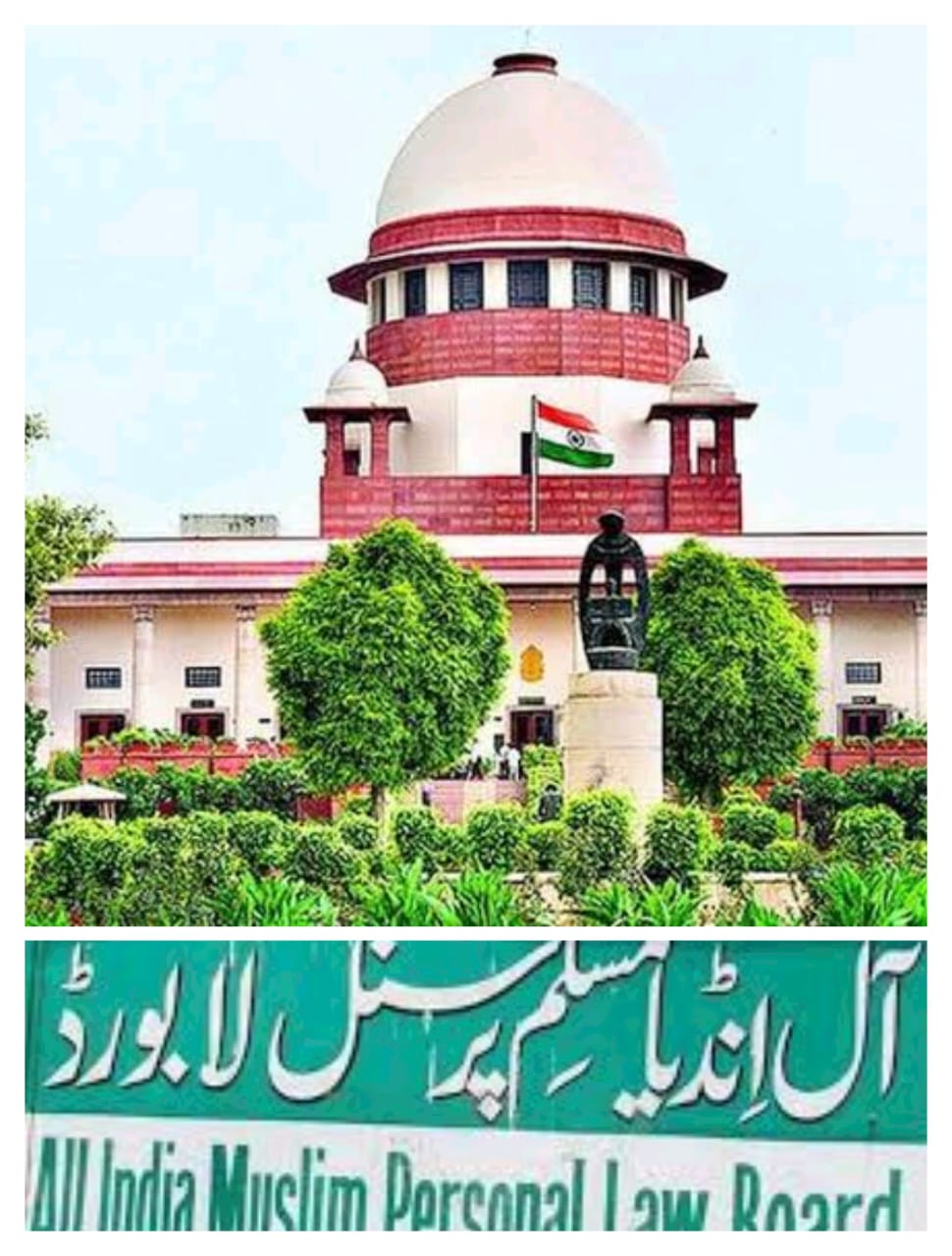A Legal Battle Unfolds Over the Waqf (Amendment) Act, 2025
In a significant legal development, the All India Muslim Personal Law Board (AIMPLB) has filed a petition challenging the constitutional validity of the Waqf (Amendment) Act, 2025, in the Supreme Court of India. The petition raises serious concerns about the implications of the newly enacted legislation, which critics argue is discriminatory and undermines the rights of the Muslim community in managing their religious endowments. The Supreme Court bench, led by Chief Justice Sanjiv Khanna, is set to hear the case urgently, marking a critical moment in the ongoing debate surrounding minority rights and religious freedoms in India.
The Waqf (Amendment) Bill, which received presidential assent on April 5, 2025, was passed after extensive discussions in Parliament. However, the AIMPLB argues that the amendments introduce arbitrary and exclusionary provisions that encroach upon the fundamental rights guaranteed by the Constitution of India. Specifically, the board contends that the law violates Articles 25 and 26, which enshrine the freedom of religion and the right to manage religious institutions. This petition comes amid broader concerns regarding the government’s approach to minority affairs and the management of religious properties.
As per the report by NDTV, the petition is supported by prominent figures including Jamiat Ulama-i-Hind, AIMIM leader Asaduddin Owaisi, Congress MP Mohammad Jawed, and AAP MLA Amanatullah Khan. The board’s spokesperson, SQR Ilyas, stated that the amendments fundamentally undermine the ability of Muslims to govern their endowments and contradict the principles of Islamic Shariah.
A Closer Look at the Amendments and Their Implications
The amendments introduced by the Waqf (Amendment) Act, 2025, have sparked significant controversy. The AIMPLB points to several key provisions that they consider discriminatory and detrimental to the interests of the Muslim community. Notably, the requirement that a waqif (donor) must be a practicing Muslim for at least five years has been called into question for its implications on religious freedoms and individual rights. The AIMPLB argues that such stringent measures not only violate the principles of the Indian legal framework but also reflect an agenda to control and undermine the autonomy of Muslim religious institutions.
Furthermore, the AIMPLB’s petition articulates concerns over the selection process for members of the Central Waqf Council and Waqf Boards. The board alleges that these changes are indicative of a broader pattern of marginalization of the Muslim community in the domain of religious governance. The petition emphasizes that similar rights and protections available to other religious communities—such as Hindus, Sikhs, Christians, Jains, and Buddhists—are being systematically denied to Muslim Waqf institutions.
In a statement released to the press, the AIMPLB declared the amendments a “direct attack on the freedoms guaranteed by the Constitution”. The board’s legal team, led by advocate M R Shamshad and supported by advocate-on-record Talha Abdul Rahman, is advocating for the annulment of these controversial amendments. The board maintains that the Supreme Court, as the “guardian of constitutional rights,” should intervene to protect the rights of the Muslim minority, preventing the perceived erosion of their religious freedoms.
The Wider Context of Minority Rights in India
The legal battle over the Waqf (Amendment) Act, 2025, unfolds within a larger context of ongoing debates about minority rights and religious freedoms in India. Issues related to the management of religious properties and minority governance have been contentious, often eliciting strong responses from various communities. The AIMPLB’s legal challenge serves as a critical reminder of the need for vigilance in safeguarding constitutional rights and ensuring that minority voices are heard in the legislative process.
As India continues to grapple with issues of secularism, diversity, and religious freedoms, the implications of this legal challenge will extend beyond the immediate concerns of the Waqf community. The Supreme Court’s ruling on this matter could set important precedents for how minority rights are interpreted and protected in the country.
For readers interested in a deeper understanding of the Waqf system and its significance within Islamic practices, additional resources can be explored on[Indian Express](https://indianexpress.com/) and[The Hindu](https://www.thehindu.com/).
Future Implications of the Legal Battle
The legal proceedings initiated by the AIMPLB against the Waqf (Amendment) Act, 2025, will be closely watched by various stakeholders, including religious organizations, legal scholars, and policymakers. The outcome could potentially reshape the landscape of minority rights in India and influence the relationship between government authorities and religious communities.
The Supreme Court’s decision will also be pivotal in determining whether the amendments will stand or be struck down, influencing future legislative measures concerning the governance of religious endowments. As the case unfolds, it exemplifies the ongoing struggles faced by minorities in asserting their rights within a diverse and complex socio-political environment conducive to change.
This high-stakes legal battle serves as a reminder of the critical need for ongoing dialogue and advocacy in the realm of minority rights. By addressing the concerns raised by the AIMPLB, the Supreme Court has the opportunity to reaffirm its commitment to protecting the rights of all citizens, regardless of their religious affiliation, and to ensure that the principles enshrined in the Constitution are upheld in practice.
For further developments on this case and its implications, follow updates on major news platforms such as[BBC India](https://www.bbc.com/news/world/south_asia) and[Al Jazeera](https://www.aljazeera.com/).
DISCLAIMER
We have taken every measure to ensure that the information in this article and on our social media platforms is accurate, verified, and obtained from reliable sources. For feedback or complaints, please contact us at info@hamslive.com.


